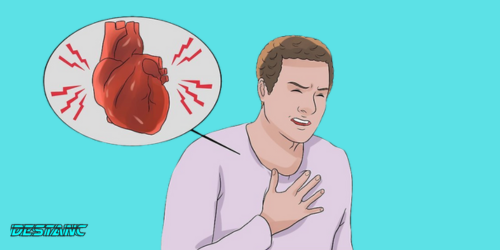6 warning signs that your heart is not working as it should
As an important organ that maintains the circulatory system, the heart is the cornerstone of our health. However, there are times when the heart does not function optimally, which can lead to potential health risks. Recognizing the warning signs that your heart isn’t working properly is critical to preventing and preventing serious cardiovascular problems. In this article, we’ll explore these warning signs and highlight the importance of paying attention to your heart health.
Part 1: Understanding how the heart works

Overview of the heart
Briefly describe the role of the heart in the circulatory system.
Explain the mechanism of compression and blood circulation.
Common Heart Disorders
Predominant heart diseases such as heart failure, arrhythmias, and coronary artery disease are highlighted.
Discuss how these conditions can affect the overall function of the heart.
Part 2: Warning signs of heart failure

- Chest discomfort:
Describes the different types of chest discomfort that may indicate heart disease.
Differentiate between angina and more severe chest pain.
- Shortness of breath:
Discuss how shortness of breath and difficulty breathing can be warning signs.
To investigate the relationship between respiratory distress and cardiac function.
- Fatigue and weakness:
Investigate unexplained fatigue and weakness as potential indicators.
The impact of heart failure on energy levels is discussed.
- Irregular heartbeat:
Study of palpitations and irregular heartbeats as signs of arrhythmia.
discussing the importance of tempo violations.
- Swelling of feet and ankles:
Explains how fluid retention and swelling can be linked to heart problems.
Explain the role of the heart in maintaining fluid balance.
Part 3: Risk factors for heart failure

Modifiable risk factors
Identify lifestyle factors that contribute to heart problems.
Discussing the importance of adopting heart-healthy habits.
Nonmodifiable risk factors
Study of genetic and age-related risk factors.
Specific prevention strategies are emphasized based on individual risk profiles.
Section 4: Getting medical help
Immediate action
Outlines actions to take when warning signs appear.
It is emphasized that it is important to call for emergency help and not to ignore the symptoms.
Diagnostic tests
Common diagnostic tests to assess heart function are discussed.
The role of electrocardiogram, echocardiogram, and stress test is emphasized.
Finally, paying attention to the warning signs that your heart isn’t working properly is critical to cardiovascular health. Ignoring these symptoms can lead to more serious complications. By understanding symptoms, paying attention to risk factors, and seeking medical attention early, people can take proactive steps to maintain heart function and overall well-being. A heart-healthy lifestyle, regular checkups, and awareness of warning signs can help people protect their hearts and live longer, healthier lives.



